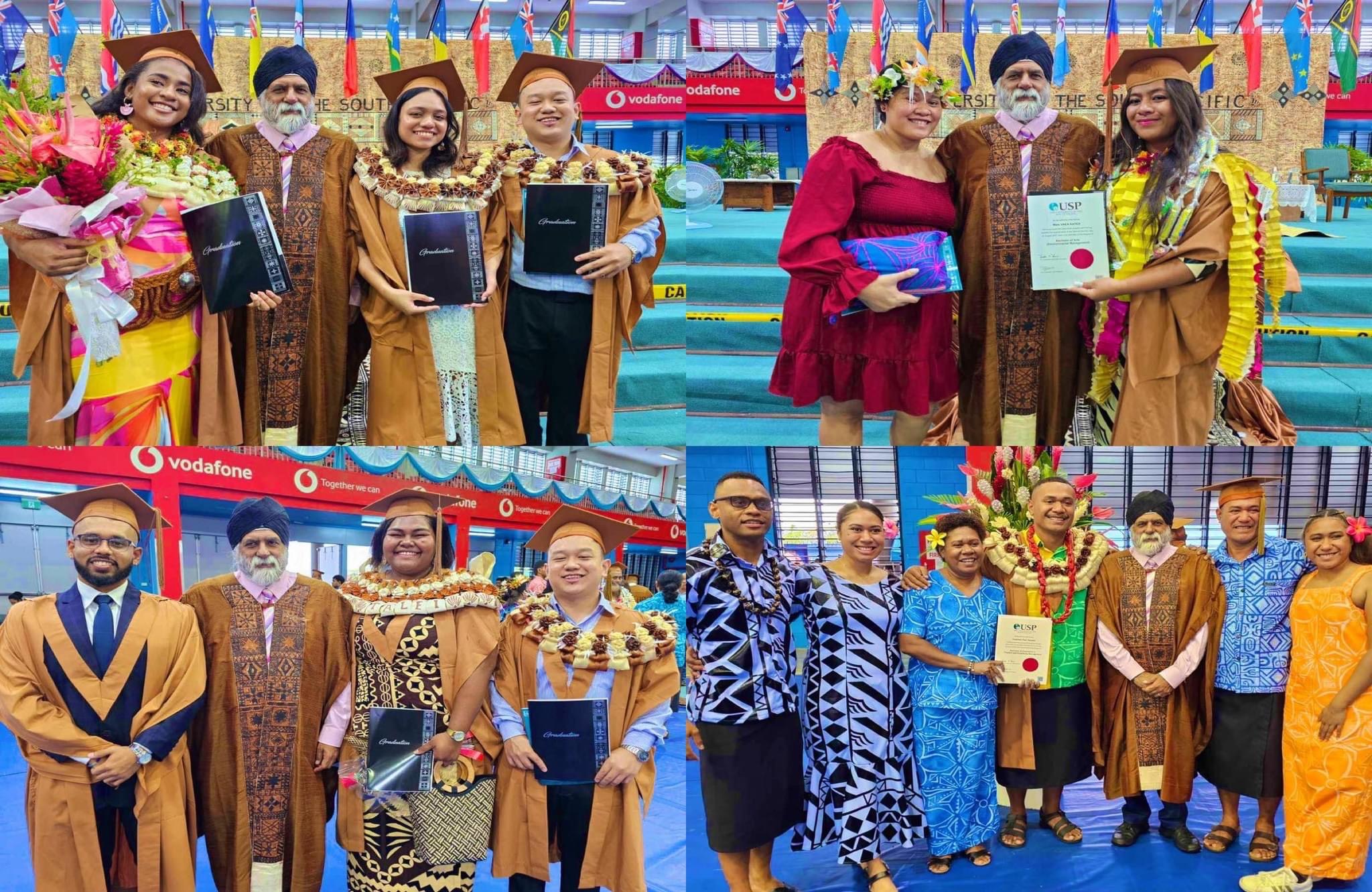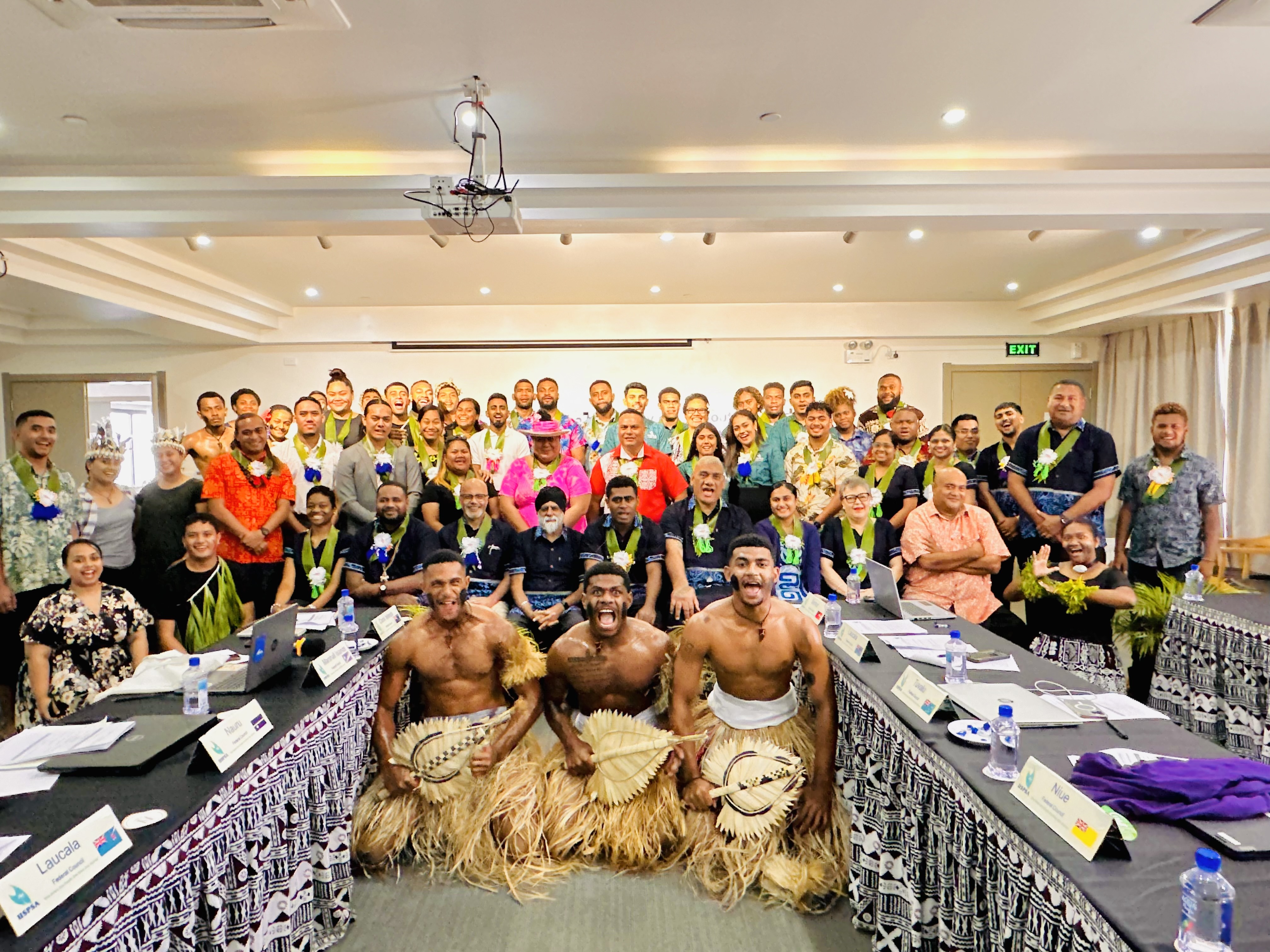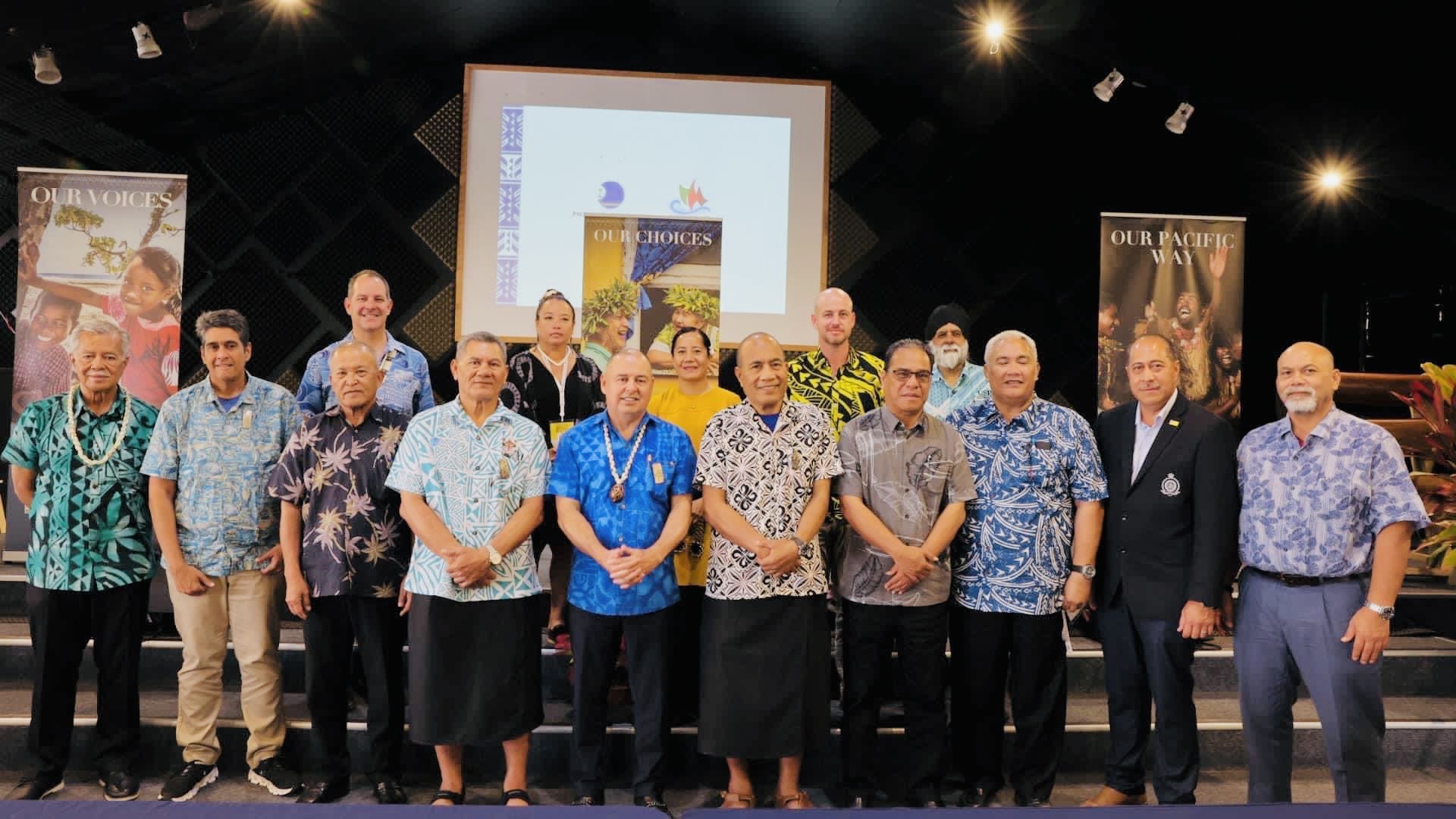Office of the Vice-Chancellor and President


The University’s region includes a vast oceanic space that covers almost 20% of the Earth’s surface – our Blue Pacific continent. For our Pacific region, and its island countries, the ocean is central to our existence. Exercising a sense of common identity and purpose linked to the ocean has been critical for protecting and promoting the potential of our shared resources. It is this commonality of the fundamental essence of the region, which provides the potential to empower through collective and combined agendas and actions.
Indeed, it was this potential that formed the essence of the visionary foundation laid down by our Pacific forebearers and which in turn has made USP the greatest success story of regional cooperation. Here ancient familial links honed by shared challenges and resource constraints are the catalyst for enduring regional partnership in the enhancement and empowerment of our peoples through higher education.
However, against this backdrop of hope and optimism, our region faces several common challenges, each amplified by the devastating impact of the COVID-19 pandemic and the pervasive impacts of climate change. These challenges include peace and security, economic development, climate change-related impacts, natural disasters, oceans and the environment, the rise of NCDs; technology and connectivity and the loss of skilled workforces through emigration and labour-mobility schemes.

For the University, the ongoing impact of COVID-19 and its major strategic and financial impacts continues to be felt. While much of this uncertainty across the tertiary education sector globally is due to the massive drops in the domestic and international student market, the pandemic also exposed deeper issues that impact learning, teaching, the culture of universities and the future demand for tertiary education. Questions about digital, distance, and place-based learning, fundamental concerns about the value and kind of qualification have been asked and tertiary institutions are required to provide cost-effective answers to these questions in order to mitigate challenging global trends and ensure their own survival.
In our own neighbourhood, universities across Australia and New Zealand are laying off hundreds of staff to address major financial operating deficits and to remain viable – we are no different. Equally concerning for us is that our own data shows alarming declines in student numbers across the region. Apart from the “COVID lift” in 2020 and 2021, which was a common phenomenon across the global tertiary sector, our numbers have rapidly declined since 2021 to continue a downward trajectory that began well before COVID.
In reflecting on this landscape, I remain profoundly humbled by USP’s achievements to date and in particular, the way that we navigated forward through the challenges brought on us by COVID as well as the additional and hugely disruptive politically motivated pressures that were placed on the University and my own leadership. Looking forward, I am under no illusions that we will continue to face sizable and deep challenges and that to realise our full potential as a regional university, we need to be at our best to efficiently and effectively teach, learn, support and research.

However, we will also require doing things universities often find challenging to do, listening to people and stakeholders, valuing relationships and partnerships in new ways, and caring for communities and natural resources we haven’t cared enough for. It will also require something that is often even harder: stop doing things–whether it is because they cannot be done excellently or are no longer needed or relevant or that they should be more appropriately offered by the growing network of national institutions.
Already USP teaches many qualifications of a shorter duration, programmes closely connected with business and the market, and many which hard-to-reach students find appealing. USP has a strong base of delivering education in different modalities including non-degree courses and workplace integrated learning and is deepening its online delivery: all areas where there is increased importance. As the model of the 3-4 year undergraduate degree comes under greater pressure both from students and employers, USP’s flexibility to deliver in different ways offers great opportunity.
A prosperous and resilient region will require an agile, highly productive knowledge economy led by appropriately educated and skilled people, and USP will have to play a leading role in this social and economic transformation. USP has always had to be responsive and resilient and this is a strength it could do much more with and it has more to gain and less to lose from genuine innovation. In short, USP is best positioned to claim leadership in areas no other university in our region yet has the capability, need and courage to pursue.
Our University has always been an innovator bringing together our commitment to equitable access and excellence and driving positive change. Despite the challenges facing the higher education sector and a rapidly changing global environment, we will continue to work collaboratively to magnify our positive impact through bold programs, research and creative activities and strategic initiatives dedicated to sustainability, equity and global excellence and engagement. These directions will require leadership, capability and courage to pursue and achieve the right balance.

I am heartened by the ongoing endorsement of our institution by our current stakeholders and leaders. In her recent 2023 FDC Pacific Lecture at the Lowy Institute in Australia, the Honourable Fiamē Naomi Mataʻafa, Prime Minister of Samoa said “USP has contributed significantly towards shaping the framework for the Pacific regionalism through intellectual dialogue, and to interface with people who are actively engaged in redefining the way the Pacific framework should work. The collaboration between USP and other institutes in the region can leverage research-based sustainable solutions for issues facing the region.”
USP has been and continues to be a bedrock for that regionalism. A resource owned by the region; for the region and a precious institution that needs to be protected in line with the vision of our forebearers. We know that we can do more together than alone and where, to quote Aristotle, “the whole is greater than the sum of its parts”.
In acknowledging this collective spirit, I look forward to working together with all our staff, students, Council, Member Governments and wider stakeholders as we drive for excellence.
Thank you,
Professor Pal Ahluwalia
Vice-Chancellor and President
You will need your USP login to see these